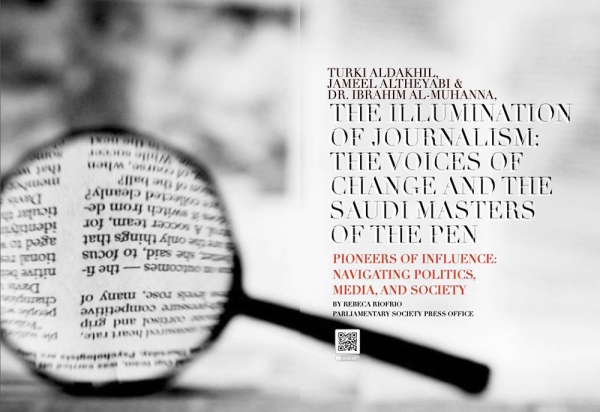
As the celebrations for Saudi National Day subside, it is worth reflecting on the many changes that have come about as a result of continuing national development, which I have felt not only in my career as a lawyer, but as a citizen too.
Over the past four years, the judicial system in the Kingdom has witnessed unprecedented development to complement the efforts of the late King Abdullah. The positive changes and developments have cast light on the Kingdom’s embrace of the law. Efforts by judicial entities of all types have contributed to improving the level of human rights culture and emphasizing our rights as legal practitioners.
During the past year, the Ministry of Justice has witnessed for the first time in its history the employment of women. The ministry has announced a set of government administrative functions targeting beneficiaries in various fields such as law, administration, social service and Shariah. The ministry has also supported offices at personal status courts that deal with alimony, custody, divorce and other cases. The role of these offices is to educate beneficiaries about their rights under the law, in addition to facilitating access to the court services and the submission of memorandums, documents and other details, which has significantly helped most of the 26,000 beneficiaries of these offices during the past year. In order to encourage community initiatives, the ministry called on charities and foundations to present their initiatives and services within its courts. The aim is to achieve the objectives of Vision 2030 in activating governmental institutions and coordinating joint programs with other sectors in order to support and consolidate community participation.
Since the launch of Vision 2030 and its national initiatives, the Ministry of Justice, in partnership with the Supreme Council of the Judiciary, has launched several measures and action plans aimed at reducing litigation procedures, speeding up cases, mitigating the flow of lawsuits to courts and improve the quality of legal documentation. All of this will certainly contribute to raising the Kingdom’s ranking in international legal indicators.
The biggest challenge lies in fighting corruption, a key issue for society, the economy and security, and ensuring that the law applies equally to everyone. Specialized departments have been established to investigate and prosecute cases of corruption, and report directly to the General Prosecutor.
To stimulate the trade and business environment and provide a sound economic and legal environment, the Ministry of Justice has launched specialized commercial courts, which opened last October in Riyadh, Jeddah and Dammam, as well as specialized commercial departments within the general courts throughout the Kingdom. The aim is to accelerate the pace of the commercial judiciary and its dynamics, which will certainly stimulate investment in general in the Kingdom.
In addition, the Kingdom is reviewing, developing and launching several laws that will improve and rationalize community interaction. The anti-harassment law is one of the most important, because it touches such a sensitive area of society, previously considered too difficult to define and legislate for.
The Supreme Court has also applied the traffic laws to women, and will, of course, facilitate their involvement in business sectors in a more practical and cost-effective manner.
Finally, I pray that God protects our precious nation, which has such great hope in us, and that we have the determination to develop it successfully.
• Dimah Talal Alsharif is a Saudi legal consultant, head of the health law department at the law firm of Majed Garoub and a member of the International Association of Lawyers.
Twitter: @dimah_alsharif
Disclaimer: Views expressed by writers in this section are their own and do not necessarily reflect Arab News" point-of-view












